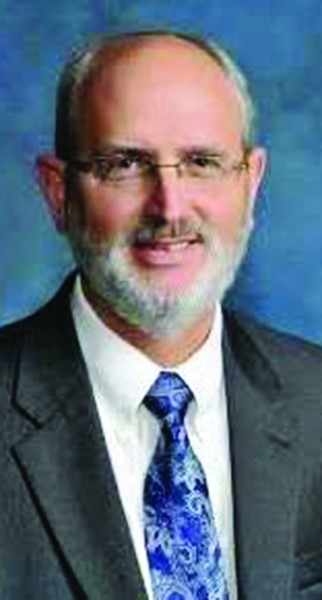Doing our part to ensure that freedom continues
The first Pesach seder is on April 8 this year. It is traditionally spent with family and friends. Some congregations celebrate the first or second seder as a community. This year, the COVID-19 virus has put a strain on these traditions.
During the past few weeks, in-person religious services were shut down. Traditions and observances have been supplanted by government requests that we all show unprecedented amounts of self-control.
This has caused everything in our lives to change. We were asked to forgo many of the freedoms we take for granted for the greater good. We complied because we knew it was important and that our freedoms would be restored sooner rather than later.
We fear for our own health. We fear for the health of our dear ones. We face the uncertainty of financial strain and we worry about the unprecedented disruption of our communal life, our work and careers, our social and family connections. We must acknowledge these discordant feelings if we are to seek a way forward from the present moment.
Rabbi Nachman of Bratzlav, one of the great Jewish teachers of Hasidic lore, wrote these words, which have become an often-heard song in our synagogues and prayer gatherings:
Kol ha-olam kulo – gesher tzar meod- ve’ha-ikar, lo le-fached klal. All the world is a narrow bridge, and the essential goal is not to be afraid .…
This translation does not do justice to the teaching, which, if taken at face value, would be absurd. How could a person, walking on a narrow beam, a tightrope of sorts, across a deep chasm, not be afraid? The goal must lie in not giving in to the fear – not becoming paralyzed or frozen, but moving forward despite the danger.
This is the opposite of what B’nai Yisrael, who were slaves in Egypt, experienced. During their time under the rule of Pharaoh, they were forced to do things under penalty of being severely punished.
When they left Egypt, they were given freedom, but the slaves complained that they wanted to return to what they perceived as the safety of slavery. Therefore, it took 40 years for the Exodus from Egypt, a trip that should have taken only weeks: That first generation had to be replaced by the next, which had no recollection of slavery, before they could enter The Land of Israel.
Very few of us alive today can remember the sacrifices our country made during World War II. That was a time when our country came together to do what it took to protect our freedoms and to ensure that other free people around the world would remain free. But many of us can remember the freedoms we gave up during the gas rationing of the 1970s, when we waited in long lines to get fuel. To make things more difficult, we could only go on odd or even days, as dictated by the last number or letter of our license plates.
To be sure, the disruption that COVID-19 has caused has led to feelings like depression for those who have lost jobs, but we know that our country’s response has saved countless lives.
Those who left Egypt suffered a disruption that they could not understand, but the generations that followed owed them their freedom. In fact, without freedom, what kind of country would the United States be? Without freedom, would our response to COVID-19 have been more like that of China? Think about that.
Yes, Passover was the first time in recorded history when the human condition was introduced to freedom. This year, we have had to give up some of our freedom, but we know we are doing it temporarily and that we will all be thankful we did it to protect the lives of those who will come in the future.
Jews love to do mitzvot – gemilut hasadim – acts of charity and compassion. Our communities are rising to the challenge of caring for our elders and most vulnerable, of continuing to stock food pantries, make deliveries, provide essential care to those in need.
Prayer, study, tzedakah – these are the ways Jews respond to crisis. And while we are mostly doing this today in the virtual world, we are still praying together in many homes. These are our natural antibodies to despair, anxiety, fear, sadness, evil, boredom.
We all pray that these pandemics, and tornados, hurricanes, blizzards, droughts, floods, and similar challenges, never happen again, but we know that they will. What is important is not what occurs, but how we face these challenges.
Unlike the selfishness of B’nai Yisrael who wanted to return to slavery, may we always do what we have to do to understand our role in protecting God’s great gift of freedom, which was first given to us with the Exodus from Egypt.
Whatever we do this Passover, be it spending time with our family or our virtual community, may we all enjoy a Kosher and healthy Festival of Freedom.
Above all, may we all continue to do our part in ensuring that freedom continues to live on for those who come after us.
RICHARD PERLMAN is the senior rabbi at Temple Ner Tamid, in Peabody, Massachusetts. He is a member of the Greater R.I. Board of Rabbis and co-president of the North Shore Rabbis and Cantors Association.








